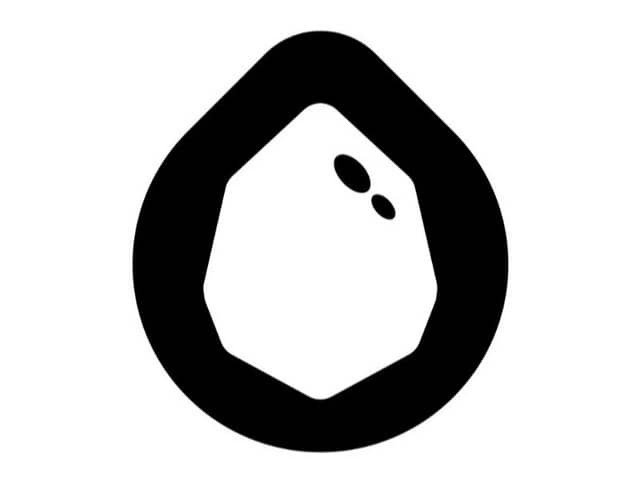Subscribe to wiki
Share wiki
Bookmark
Drop
The Agent Tokenization Platform (ATP):Build autonomous agents with the Agent Development Kit (ADK)
0%
Drop
Drop is a liqud staking protocol for Interchain assets that enables users to earn staking rewards while maintaining liquidity of their staked assets. As a member of the Lido Alliance, Drop transforms staked capital into liquid tokens (dAssets) that can be utilized across various DeFi applications while continuing to generate staking rewards. [1]

Overview
Drop was developed to address the challenge of capital inefficiency in proof-of-stake networks, where staked assets typically become illiquid during the staking period. The protocol operates on Neutron, leveraging the Inter-Blockchain Communication (IBC) protocol to provide liquid staking services across multiple blockchain networks in the Cosmos ecosystem.
As part of the Lido Alliance, Drop supports initiatives to decentralize critical Ethereum ecosystem components such as bridges and data-availability layers. It also contributes to innovation and experimentation that benefit both Lido and the broader Ethereum network. Additionally, Drop promotes the distribution and adoption of wrapped staked ETH (wstETH) across interconnected blockchains, including its use as restaking collateral within the Interchain ecosystem. Drop aims to strengthen the economic viability of sovereign blockchain economies by transforming stagnant, frozen capital into productive assets. The protocol's architecture utilizes Neutron's Interchain Transactions (ICTX) and Interchain Queries (ICQ) modules, enabling it to provide trust-minimized liquid staking services that can scale with minimal additional overhead and risk.
Drop's core innovation lies in its ability to mint liquid staking receipt tokens (dAssets) using the Token Factory standard, allowing users to maintain liquidity while earning staking rewards and potentially additional yield through various DeFi applications. [1] [12]
Architecture
Drop's technical architecture is built on Neutron as an Integrated Application, utilizing several key components:
- CosmWasm smart contracts: The core protocol logic is implemented as CosmWasm contracts that control the flow of assets between multiple blockchains
- Inter-Blockchain Communication (IBC): Enables secure cross-chain communication and asset transfers between Neutron and other Cosmos-based chains
- Interchain Transactions (ICTX): Allows Drop to initiate transactions on remote chains from Neutron, essential for staking and unstaking operations
- Interchain Queries (ICQ): Enables Drop to query data from remote chains, providing real-time information about validator performance and network conditions
- Token Factory: Used to mint and manage dAssets according to the Token Factory standard on Neutron [4]
Products

Drop offers several liquid staking tokens (dAssets) that represent staked positions on different networks:
- dATOM: Liquid staking token for Cosmos Hub's ATOM
- dTIA: Liquid staking token for Celestia's TIA
- dNTRN: Liquid staking token for Neutron's NTRN
- deINIT: Liquid staking token for INIT Labs' INIT [2]
dNTRN
dNTRN is a liquid staking token developed by Drop for the Neutron network, introduced alongside the network's transition into a sovereign proof-of-stake (PoS) chain through the Mercury upgrade. This transition enables native staking, liquid staking, and expanded DeFi functionality.
dNTRN allows holders of NTRN, Neutron’s native token, to participate in staking without locking up their assets. Users receive dNTRN in exchange for staked NTRN, maintaining liquidity while continuing to earn staking rewards. The asset can be used within DeFi applications—such as lending, liquidity provision, and trading—while still contributing to network security.
The initial deployment of dNTRN is supported by the Neutron DAO through a strategic liquidity initiative, including 225 million NTRN staked with Drop, 25 million paired with dNTRN on Astroport, and 5 million allocated to Mars Protocol to support lending markets. These measures are designed to ensure liquidity, reduce slippage, and facilitate integration into the broader DeFi ecosystem. [10]
deINIT
deINIT is a liquid staking derivative developed by Drop on Initia's L1 decentralized exchange (DEX), designed to improve capital efficiency within decentralized finance (DeFi). It consolidates staking rewards and trading fees into a single yield-bearing asset by tokenizing staked LP positions in the INIT-USDC pool (80% INIT, 20% USDC).
Traditional liquid staking solutions often separate staking from liquidity provision, resulting in partially productive capital and misaligned incentives. In contrast, deINIT integrates both functions, enabling 100% of the LP position to earn staking rewards while participating in DEX liquidity.
Users can mint deINIT either by depositing INIT (with 20% converted to USDC to form a balanced LP position) or by staking pre-existing INIT-USDC LP tokens. This approach compounds both trading incentives and staking yields automatically, reducing the need for manual intervention. [9]
Features
Drop's protocol offers several key features that differentiate it in the liquid staking market:
- Auto-compounding rewards: Staking rewards are automatically reinvested, maximizing returns without manual intervention [3]
- Immediate liquidity: Users can transfer, sell, or utilize their dAssets at any time, unlike traditional staking which locks assets for a period [3]
- Composability: dAssets can be deployed across various DeFi applications for additional yield opportunities [4]
- Airdrop eligibility: Users remain eligible for ecosystem airdrops while staking through Drop [3]
- Validator diversification: Assets are distributed across multiple validators, reducing risk compared to staking with a single validator [5]
- Real-time monitoring: The protocol employs 24/7 monitoring and alerting for all critical components to ensure security [4]
Ecosystem Integration
As a member of the Lido Alliance, Drop benefits from collaboration with one of the largest liquid staking providers in the blockchain space. This alliance was confirmed through a Lido DAO vote, positioning Drop as a strategic partner in expanding liquid staking solutions to the Interchain ecosystem. [6]
Drop has established integrations with numerous DeFi protocols across the Interchain, including:
- Astroport: Permission less Concentrated Liquidity (PCL) and Automated Market Maker (AMM)
- Margined: Vault strategies
- Apollo: Vault strategies
- Shade: AMM, Lending, and Stablecoin services
- Fission: Yield splitting
- Levana: Perpetual contracts
- Osmosis: Uniswap V3-style AMM
- Mars: Lending, Margin trading, and Perpetual contracts [4]
Use Cases
- Earning staking rewards without lockups: Users can stake assets and earn rewards while maintaining the ability to exit positions at any time [3]
- Yield farming: dAssets can be provided as liquidity in AMMs or yield farming protocols to earn additional rewards [7]
- Collateralized lending: Users can use dAssets as collateral in lending protocols to borrow other assets while still earning staking rewards [4]
- Trading and arbitrage: The liquid nature of dAssets allows for trading opportunities between the dAsset and its underlying token [4]
- Participating in governance: dAsset holders can potentially participate in the governance of both Drop and the underlying networks [3]
Droplets Program

The Droplets Program is an initiative that allows users to earn DROP tokens (the native token of the Drop protocol) by using dAssets across various DeFi applications. Users earn Droplets points for participating in supported activities, which can later be redeemed for DROP tokens upon the token launch. [8]
Activities that earn Droplets include:
See something wrong?
The Agent Tokenization Platform (ATP):Build autonomous agents with the Agent Development Kit (ADK)
